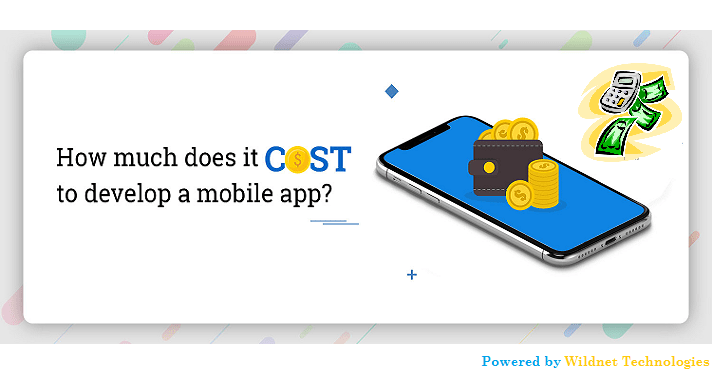In the ever-evolving landscape of SEO, link building remains a cornerstone for enhancing organic rankings, bolstering domain authority, and generating consistent, high-quality traffic. However, earning backlinks through traditional outreach can often be time-consuming and competitive. What if there was a more innovative, more strategic way to gain valuable links—one that focuses on solving real problems for website owners while strengthening your SEO foundation? Enter broken link building: an ethical, high-impact strategy that transforms dead links into meaningful opportunities for growth.
Rather than starting from scratch, broken link building allows you to tap into existing web pages that already contain broken outbound links. By identifying outdated or inactive links and offering relevant, high-quality content as replacements, you not only enhance the user experience for site visitors but also earn powerful backlinks in return. This guide unpacks the mechanics of broken link building, why it’s more crucial than ever in modern SEO, and how to execute it effectively through personalized, value-driven outreach.
What Is Broken Link Building?
Broken link building is the process of identifying broken (dead) outbound links on other websites, reaching out to the site owner, and suggesting your relevant content as a replacement. It’s a win-win solution: the website fixes its broken link to improve user experience, and you earn a high-quality backlink to your content.
These broken links typically result from outdated content, deleted pages, or domain migrations. Spotting these gaps and offering a valuable, working resource positions you as helpful—not spammy—while also strengthening your backlink profile.
Why Broken Link Building Still Matters in 2025
Even with the rise of AI and algorithmic sophistication, broken link building remains one of the most practical and sustainable white-hat SEO techniques. Here’s why:
1. It’s Ethical and Value-Oriented
Unlike link schemes or paid placements, broken link building is built on mutual benefit. You’re helping webmasters clean up their content while promoting yours in a non-intrusive way.
2. Less Competition Compared to Traditional Outreach
Many marketers focus on guest posting or media placements. Fewer take the time to identify and replace broken links, giving you a better chance of getting accepted.
3. It Enhances UX and Site Credibility
No one likes clicking on a dead link. By helping site owners fix theirs, you improve the overall experience for their users—something Google rewards.
4. It’s Scalable with the Right Tools
Modern SEO tools make it easier than ever to find broken links at scale. With proper organization and a solid outreach strategy, this method can yield dozens of backlinks with minimal cost.
How to Execute a Successful Broken Link Building Campaign
Let’s break down the process into actionable steps:
Step 1: Find Relevant Websites in Your Niche
Start by identifying authoritative websites in your industry. These should be sites that:
- Publish content similar to yours
- Have a high domain authority
- Regularly post articles, resources, or blog content.
Use Google search operators like:
- keyword + inurl:resources
- keyword + intitle:links
- keyword + site:.edu
These advanced queries help identify resource-intensive pages where broken links are more prevalent.
Step 2: Identify Broken Links Using SEO Tools
Now that you’ve found potential targets, use tools like:
- Ahrefs (Site Explorer > Outgoing links > Broken links)
- Screaming Frog SEO Spider
- Broken Link Checker (by AtomSEO or W3C Link Checker)
- Check My Links (Chrome extension)
These tools scan websites for 404 errors or URLs that are unreachable. Make note of:
- The broken URL
- The page it appears on
- Anchor text
- Context of the link
Step 3: Create or Optimize a Replacement Resource
Once you know what kind of link is broken, create or select content on your site that matches or improves upon the original page. Make sure:
- The content is relevant and valuable
- It matches the context of the broken link.
- It offers updated or expanded information.
If you don’t already have a fitting page, consider writing a quick blog post, checklist, or guide tailored to the topic.
Step 4: Craft a Personalized Outreach Email
Your email pitch should be concise, respectful, and helpful. Here’s a basic structure:
Subject Line: Broken link on your [Page Title] – here’s a quick fix
Email Body:
Hi [Name],
I was browsing your excellent article on [Page Title] and noticed a broken link pointing to [Broken URL]. You should fix it for a better user experience.
I recently published a relevant piece on the same topic that may serve as a good replacement: [Your URL]. Feel free to check it out—hope it helps!
Thanks for sharing such valuable content.
Best regards,
[Your Name]
The tone should be professional but friendly. Focus on helping, not selling.
Step 5: Track Responses and Follow Up
Not everyone will respond right away. Keep a spreadsheet or CRM updated with:
- Contact name and email
- URL of the broken link page
- Date of first outreach
- Follow-up dates and outcomes
Send one or two polite follow-ups spaced a few days apart.
Best Practices for Broken Link Building
- Always Verify the Link Is Truly Broken
Use tools and manual checks to confirm a 404 or dead link. - Stay Relevant
Only suggest content that closely aligns with the original intent of the broken link. - Keep Outreach Emails Short
Avoid long explanations. Editors appreciate brevity and value. - Don’t Spam
Target websites selectively and personalize every pitch. - Maintain High Content Standards
Your suggested link should genuinely improve the value of the referring page.
Tools to Streamline the Process
- Ahrefs & SEMrush – to identify broken backlinks
- Screaming Frog – to crawl websites
- Hunter.io or VoilaNorbert – for email lookup
- BuzzStream or Mailshake – to automate and track outreach
- Google Sheets or Airtable – for campaign tracking
Utilizing these tools can expedite your workflow and enhance your success rate.
Benefits of Broken Link Building
- High Link Acceptance Rate
Your offer is helping site owners, making them more likely to accept. - Builds Strong SEO Signals
Relevant, contextual backlinks enhance your domain authority and improve your rankings. - Position You as a Helpful Contributor
You build relationships, not just links. - Improves Your Outreach Confidence
Compared to cold pitching for guest posts, this tactic gets more positive replies. - Low-Cost, High-Return Strategy
Minimal investment with the potential for long-lasting SEO value.
Conclusion: Broken Links Are Hidden SEO Gold
Broken link building is more than a clever SEO trick—it’s a sustainable, ethical strategy that benefits both you and the web as a whole. By identifying broken links, offering value-driven replacements, and communicating effectively, you not only earn backlinks but also establish credibility and foster relationships within your industry.
With the right tools, content, and mindset, broken link building can become a cornerstone of your link acquisition efforts. It’s proof that sometimes the best opportunities lie in fixing what’s broken—literally.
If you’re serious about scaling your organic reach, consider integrating broken link building into your broader link-building services or SEO strategy.
FAQs: Broken Link Building
Q1: What is broken link building?
A: Broken link building is an SEO strategy where you find dead or broken links on other websites and suggest your relevant content as a replacement, earning you a backlink.
Q2: Is broken link building still effective in 2025?
A: Absolutely. It’s one of the most ethical and underused strategies for earning quality backlinks, especially with tools that streamline the process.
Q3: Do I need technical skills to do broken link building?
A: No advanced skills required—just basic SEO tools, research, and outreach communication.
Q4: What kind of content works best for broken link building?
A: In-depth guides, evergreen blog posts, checklists, and resources similar to the original (now broken) content work best.
Q5: How many emails should I send in a broken link building campaign?
A: Start with one personalized email and follow up once or twice if there’s no response. Don’t spam.
Read More
How to Use SEO to Increase Revenue Effectively?
Guest Posting vs Link Building: The Off-Page SEO in 2025
What is a Backlink Profile? Understanding Its Impact on SEO and Website Authority
What is Backlink Gap Analysis? Unlocking Opportunities to Boost Your SEO







